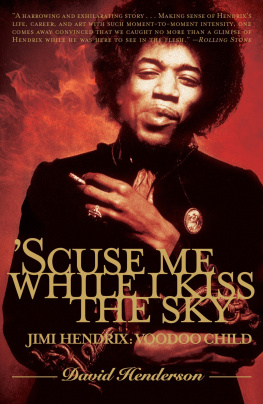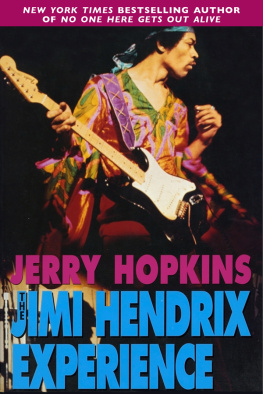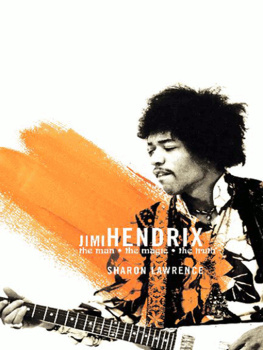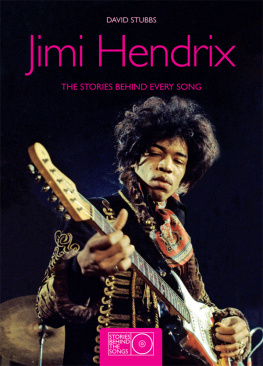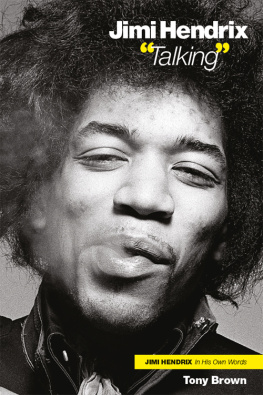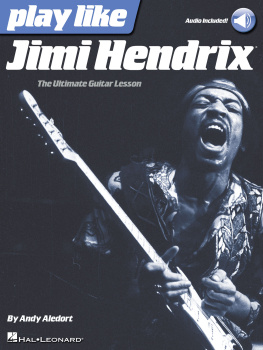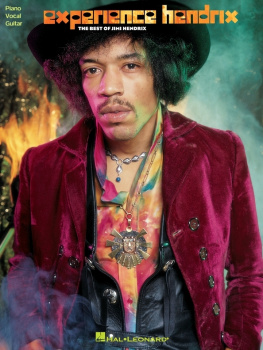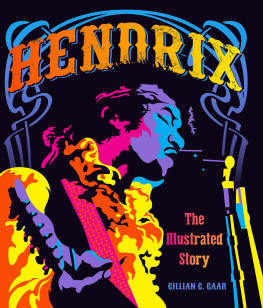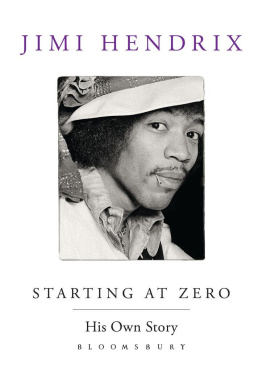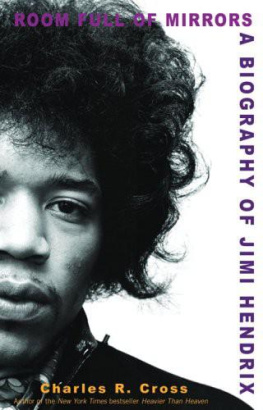PROLOGUE
A t 12:45 P.M . on Friday, September 18, 1970, Jimi Hendrix was pronounced dead at St. Marys Abbot Hospital in the Kensington/Chelsea section of London. Immediately the London offices of the major wire services reported that Hendrix had died of a drug overdose.
Monika Dannemann, the woman in whose hotel suite he was found, spoke to reporters, associates, and friends about Hendrixs whereabouts and states of mind that Thursday night and Friday morning.
Eric Burdon, lead singer of War (and formerly of the defunct group the Animals), had discovered a poem she said Hendrix had written shortly before his death. It was in Dannemanns sketchbook. The Story of Jesus, titled after its first line, is also known as The Story of Life, a title Dannemann may have chosen. It was a poem conceived as a possible song lyric.
The poem could be interpreted as the last words of a man about to die. But suicide was unlikely for a wealthy man who was in the prime of life and held in open adoration by so many. Those knowing Jimis writing were familiar with his constant referral to hearing his train coming, or in other words, having or expecting to have some premonition about his death. Perhaps it was a farewell message written under duress. Comparisons of samples of his handwriting reveal a haste not often found in his even most casual notes or song lyrics, or even in simple messages to friends or employees. The poem begins with Jesus and ends with Jimi in the first person: The story of Jesus / so easy to explain / after they crucified him / a woman, she claimed his name.
The message is rather amazing, especially as a last word. Jesuss life story is dominated by his crucifixion, even though he is considered by many to be the savior of humanity. The last line in the first stanza refers to a mysterious woman who claimed his name. Jimi then goes to a Jesus roaming the desert where he found a rose. Then in the next stanza he refers to a popular premise where Jesus was married ever / happily after / for all the Tears we cry.
Then Jimi explains that there is no use in arguing there are moans when each man falls in Battle, His / soul it has to roam.
Jimi revisits the themes recurrent in his notebooks of angels and flying saucers, but then concludes a stanza referring to Easter Sunday, the resurrection, as the name of the rising sun.
Here Jimi brings himself directly into this story: We will gild the light / this time with a woman / in our arms. Instead of death being symbolized by the cross, the mysterious woman prevails: the womans always mentioned / at the moment that we die. As he ends the poem Jimi writes that Jesuss story is the story of you and me. He makes it clear he is referring to himself. He cautions not to feel lonely, I am you searching to be free. Life can end quicker than the wink of an eye. But love is the real story, in greeting or farewell, until we meet again.
Dannemann and Burdon agreed to keep the poem from public knowledge. They felt that it might indicate a suicidal state. She said that she had called her brother in Germany and indicated that Hendrix had been exhausted and wanted to sleep for several days; and that was why, apparently, he took so many sleeping pills.
Several other versions of Hendrixs death were to quickly surface, some preposterous, some perhaps not. One account has Hendrix being the victim of a contract on his life, where the regular delivery of an array of drugs was sabotaged and the regular deliveryman substituted.

